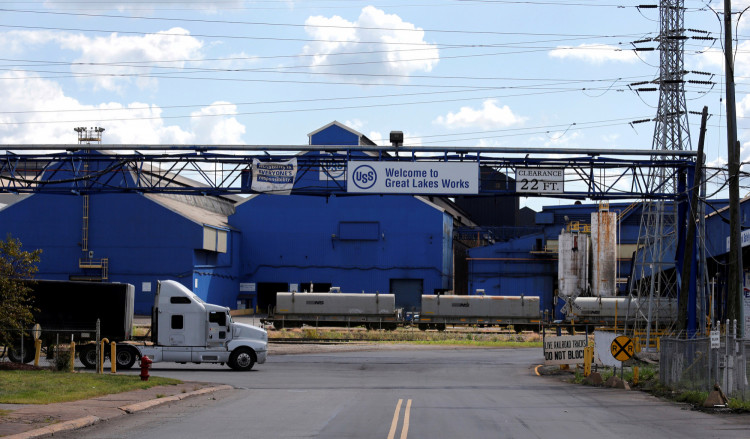The proposed $14.1 billion sale of U.S. Steel to its Japanese rival Nippon Steel has encountered a new hurdle as the Justice Department scrutinizes the deal over potential antitrust concerns. According to three people with knowledge of the matter, the DOJ's review is focused on a large manufacturing plant in Calvert, Alabama, jointly owned by Nippon Steel and Luxembourg-based ArcelorMittal, which competes directly with U.S. Steel, particularly for automotive customers.
The antitrust scrutiny adds to the growing opposition to the deal from lawmakers, unions, and the White House. President Joe Biden recently issued a highly unusual statement, emphasizing that U.S. Steel must "remain an American steel company that is domestically owned and operated." The United Steelworkers union, whose support both Biden and presumptive Republican presidential nominee Donald Trump are seeking, also opposes the deal, citing concerns over potential job losses.
While the DOJ's review is currently in a preliminary stage, attorneys have reached out to industry participants in recent weeks to inquire about the potential impact of the joint venture on competition with a combined Nippon Steel and U.S. Steel. A decision on whether to open a formal, in-depth review is expected later this month.
The primary obstacle to the deal, however, remains the recently initiated review by the Committee on Foreign Investment in the U.S. (CFIUS), an interagency panel led by the Treasury Department that assesses mergers and investments by non-U.S. interests. U.S. Steel's importance to the American industrial base has raised concerns about foreign ownership, even though Japan is one of America's closest allies.
To address the antitrust issue posed by the joint venture, Nippon Steel could agree to sell its 50 percent stake to ArcelorMittal, according to two of the people familiar with the matter. However, it is unclear if such discussions are underway, and the companies declined to comment on the matter.
In response to the growing opposition, Nippon Steel released a statement on Friday, asserting that the proposed acquisition would not result in any layoffs or plant closures. The company also pledged to invest an additional $1.4 billion in U.S. Steel and increase the current collective bargaining agreement by over 140% to address the concerns of the United Steelworkers union.
Nippon Steel also highlighted its long-standing relationship with the U.S., including its operation of facilities employing approximately 4,000 American workers and its role as a significant importer of metallurgical coal from several U.S. states. The company emphasized its commitment to advancing American priorities by driving greater quality and competitiveness for customers in critical industries that rely on American steel while strengthening supply chains and economic defenses against China.
Despite Nippon Steel's efforts to allay concerns, the political dilemma faced by the Biden administration during an election season remains a significant factor in the deal's prospects. The Japanese government, which has lobbied for the sale, believes that election year politics are at the heart of Biden's opposition to the deal.
While the success of the deal is not expected to hinge solely on antitrust concerns, a lengthy investigation would add uncertainty to the already complex and politically charged process. As the CFIUS review progresses and the DOJ continues its antitrust scrutiny, the fate of the iconic American steel company hangs in the balance, with far-reaching implications for the U.S. steel industry, national security, and international trade relations.






